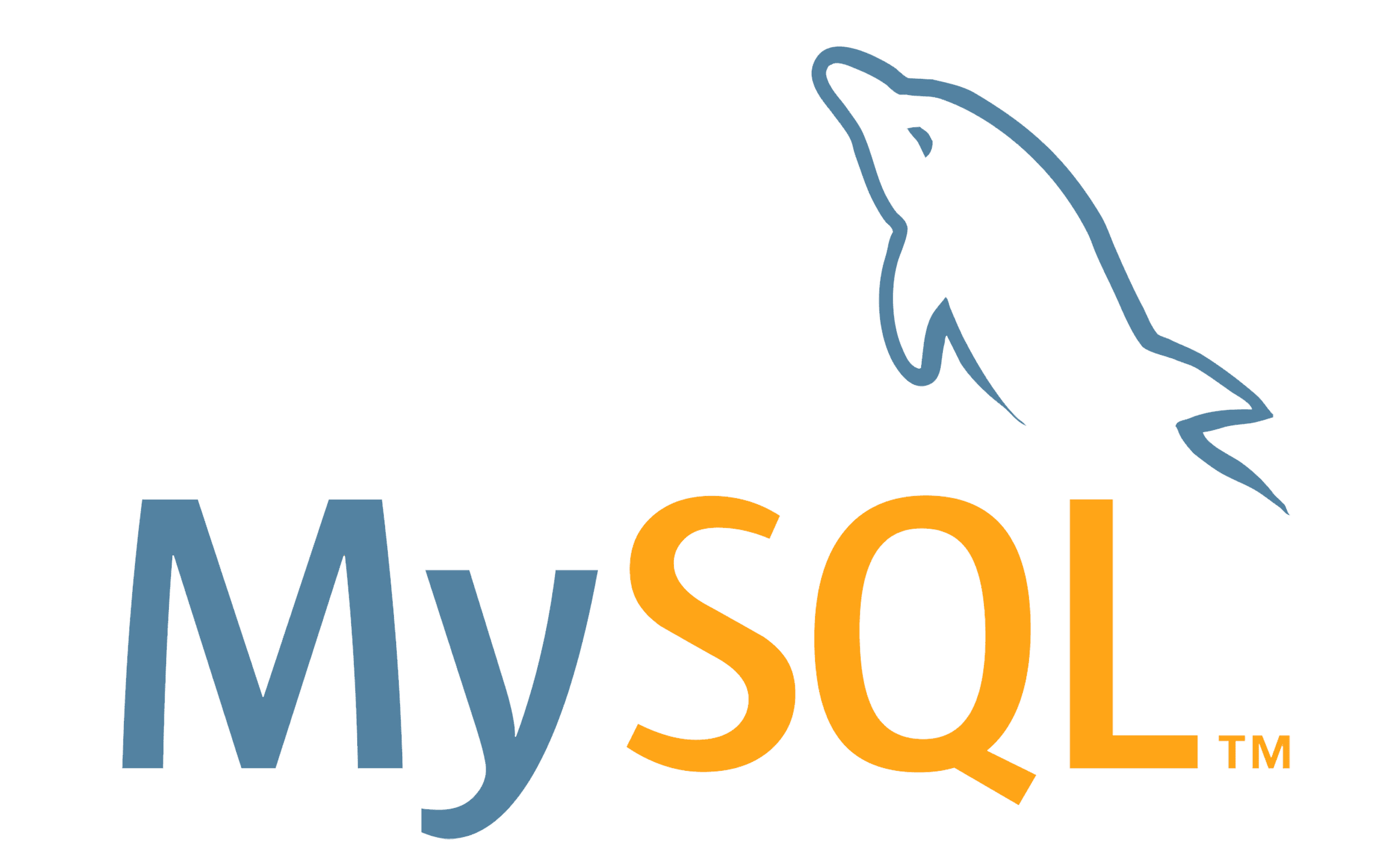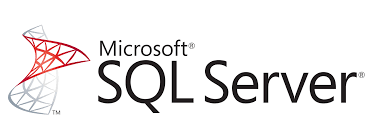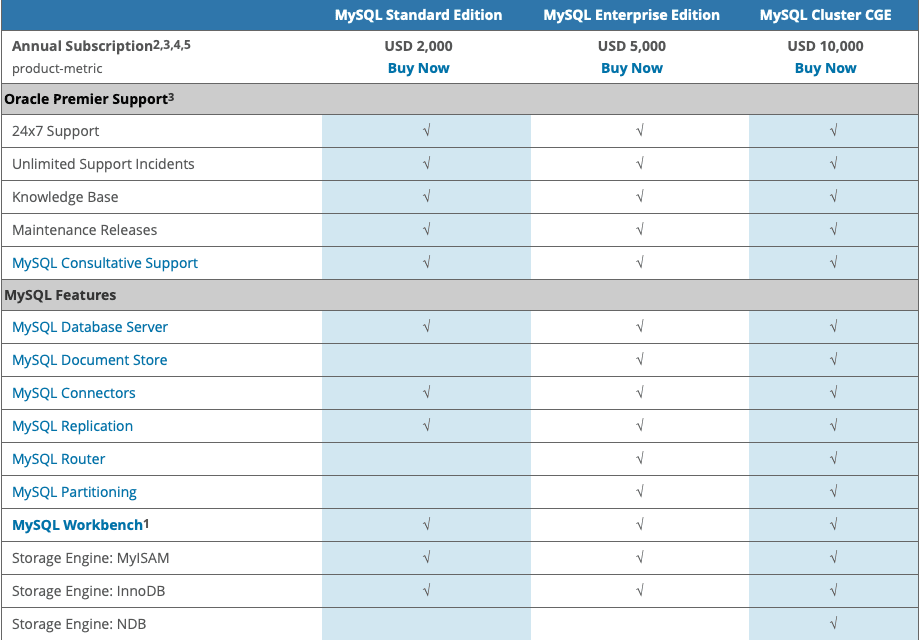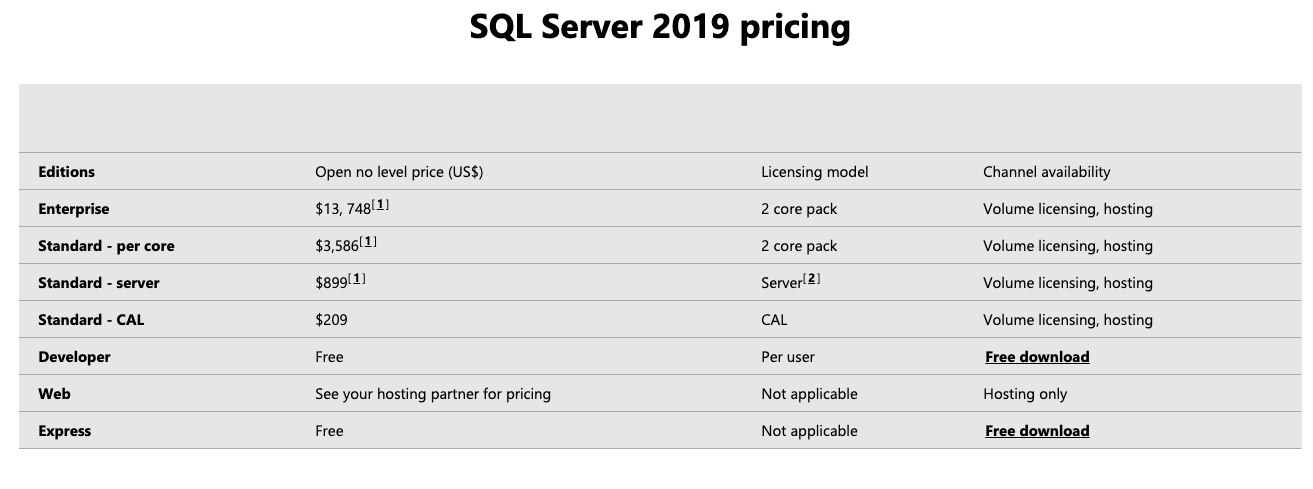Read and Process Vs Read/write Sql Server
In the modern world today, competition between companies is very mutual even when they are offering like products. In a competitive market, providing the best services and products and having the bulk of customers for a detail product does help shape the profit of a company. When it comes to the field of Database Management, the choice of MySQL vs SQL Server is a relatively tough i.
MySQL is currently endemic by Oracle and SQL Server is owned by Microsoft. Both of them are used by big and small companies and depending on the situation, one can boss over the other. In terms of processing power, SQL Server is the more than powerful one because of its extra features over the basic MySQL. It as well supports parallel and distributed Databases and offers better indexing because of which tin can have a competitive reward over MySQL.
This article presents a comprehensive assay of the 2 Databases and helps companies decide to try to answer the MySQL vs SQL Server easily. It gives a cursory introduction to both MySQL and SQL Server and provides the factors driving the MySQL vs SQL Server decision. Furthermore, information technology too talks about the challenges of both these databases. Read forth to find out nigh both these popular Databases and how companies can choose the Database they demand depending on the situation.
Too read our commodity about how to connect MySQL to SQL Server.
Table of Contents
- Introduction to MySQL
- Introduction to SQL Server
- Factors that Drive the MySQL vs SQL Server Decision
- MySQL vs SQL Server: Platform Back up
- MySQL vs SQL Server: Programming Language Support
- MySQL vs SQL Server: Features
- MySQL vs SQL Server: Scalability
- MySQL vs SQL Server: Operation
- MySQL vs SQL Server: Query Language & Syntax
- MySQL vs SQL Server: Connectors & Integration Back up
- MySQL vs SQL Server: Product Support & Documentation
- MySQL vs SQL Server: Security Features
- MySQL vs SQL Server: Pricing Models
- Challenges of MySQL
- Challenges of SQL Server
- Decision
Introduction to MySQL

MySQL was introduced past MySQL AB (now Oracle Corporation) – a Swedish Company. Launched in 1995, MySQL is an open-source, relational database management organization (RDBMS) used to store, retrieve, upgrade and administrate a database. Today, you will find myriads of MySQL variants in the market place, well-nigh of them inheriting like functionality and syntax. Information technology supports all platforms including Linux, Mac OS, Windows, Costless BSD, Solaris, and so on. MySQL was primarily written in C and C++ and it is available in the English simply.
MySQL provides multi-user access to your databases and uses the SQL language to run queries. For a Linux distribution, MySQL RDBMS is ofttimes used in combination with Apache and PHP Web Server.
To larn more nearly MySQL and how to deploy information technology in estimator systems, click this link.
Introduction to SQL Server

SQL Server is also a Relational Database Management System (RDBMS) developed by Microsoft in 1989. SQL stands for Structured Query Language. Information technology is a bones programming language used to manage data stored in RDBMS. Dissimilar databases may crave pocket-size changes in the SQL syntax, but most of them remain the same. SQL operates via simple, declarative statements. It keeps your data secure and authentic, whilst maintaining the integrity of databases, regardless of their size.
ANSI (American National Standards Constitute) considers SQL as the standard language to run your relational database systems such as MySQL. It is used to access, upgrade and manipulate information across your entire database system. Besides, it can too be used to control information accessibility and to build and manage database schemas. Besides, check SQL vs MySQL central differences.
SQL Server supports Microsoft Windows and Linux operating systems. With its language drivers, you can hands connect with any code. It is available in multiple languages including French, English, Japanese, Chinese, Castilian, and more.
To learn more about SQL Server and how to deploy it in calculator systems, click this link.
Hevo Data, a No-code Information Pipeline helps to load data from any data source into destinations like Databases, SaaS applications, Cloud Storage, BI Tools, SDK'south, and Streaming Services and simplifies the ETL process. It supports 100+ data sources (and 40+ Free Data Sources) including MySQL and SQL Server and is a iii-pace process by just selecting the data source, providing valid credentials, and choosing the destination. Hevo not only loads the data onto the desired Data Warehouse or destination of your selection but also enriches the data and transforms it into an analysis-ready form without having to write a single line of code.
Its completely automated Information Pipeline offers data to be delivered in real-time without any loss from source to destination. Its mistake-tolerant and scalable compages ensure that the data is handled in a secure, consistent manner with nix data loss and supports different forms of data. The solutions provided are consequent and work with unlike BI tools as well.
GET STARTED WITH HEVO FOR Free
Check out why Hevo is the Best:
- Secure: Hevo has a fault-tolerant compages that ensures that the information is handled in a secure, consistent manner with zero data loss.
- Schema Management: Hevo takes away the slow task of schema management & automatically detects the schema of incoming information and maps it to the destination schema.
- Minimal Learning: Hevo, with its simple and interactive UI, is extremely uncomplicated for new customers to work on and perform operations.
- Hevo Is Congenital To Scale: As the number of sources and the book of your data grows, Hevo scales horizontally, treatment millions of records per minute with very footling latency.
- Incremental Information Load: Hevo allows the transfer of information that has been modified in real-fourth dimension. This ensures efficient utilization of bandwidth on both ends.
- Live Back up: The Hevo team is available round the clock to extend infrequent support to its customers through conversation, e-mail, and support calls.
- Live Monitoring: Hevo allows y'all to monitor the data flow and cheque where your information is at a particular bespeak in time.
Simplify your Data Analysis with Hevo today!
SIGN UP Here FOR A 14-DAY Gratuitous TRIAL!
Factors that Drive the MySQL vs SQL Server Decision
Now that y'all have a basic thought of both technologies, let u.s.a. endeavor to reply the MySQL vs SQL Server question of how to make a decision between the two. There is no one-size-fits-all answer here and the decision has to be taken based on the business organization requirements, budget, and parameters listed beneath. The following are the primal factors that bulldoze the MySQL vs SQL Server decision:
- MySQL vs SQL Server: Platform Support
- MySQL vs SQL Server: Programming Linguistic communication Back up
- MySQL vs SQL Server: Features
- MySQL vs SQL Server: Scalability
- MySQL vs SQL Server: Performance
- MySQL vs SQL Server: Query Linguistic communication & Syntax
- MySQL vs SQL Server: Connectors & Integration Back up
- MySQL vs SQL Server: Product Support & Documentation
- MySQL vs SQL Server: Security Features
- MySQL vs SQL Server: Pricing Models
i) MySQL vs SQL Server: Platform Support
Equally mentioned higher up, MySQL has cross-platform back up for Microsoft Windows, Linux, Mac OS, OpenBSD, HP-UX, AIX, IBM I, OpenSolaris, Symbian, Oracle Solaris, FreeBSD, ArcaOS, IRIX, and and so on. It runs on almost every popular OS.
As compared to MySQL, SQL Server supports lesser platforms. Information technology supports Linux, Microsoft Windows Server, Mac OS 10, and Microsoft Windows operating systems. Originally, it was simply developed for Windows. But now, information technology is available on Mac Os X and Linux via Docker.
2) MySQL vs SQL Server: Programming Language Support
SQL Server supports multiple programming languages such as PHP, Get, Python, C++, Java, VB, Delphi, Ruby, and R.
MySQL supports near all programming languages supported by SQL Server. Moreover, it besides supports boosted languages such as TCL, Perl Scheme, and Haskel. This characteristic is what makes information technology extremely popular among developers.
3) MySQL vs SQL Server: Features
MySQL has an impressive prepare of features such as cross-platform support, Acid compliant, triggers, stored procedures, views updatable, commit grouping, information definition language, cursors, SSL support, sectionalization, Unicode support, and more.
MySQL supports multiple storage engines. Moreover, it also allows y'all to apply a plug-in storage engine. In MySQL, you tin can filter out rows, tables, and users through different methods. But, information technology supports filtering on individual databases only. This is why developers need to execute multiple queries to individually filter tables in the database.
For backup, MySQL allows you to extricate total data as SQL statements. While backing upward, it blocks the database, thus preventing attacks or corruption during data migration from 1 MySQL version to another. Merely, this process is time-consuming and demands efforts during information restoration equally you have to run multiple SQL statements.
MySQL cannot kill or cancel the query execution without killing the whole process.
SQL Server on the other manus likewise has loads of features such equally a database table model used to shop information or record. Multiple developers can utilise the aforementioned database in SQL Server. The syntax hither is very simple and easy to understand. Plus, it helps you write basic queries in no time such as for creating, inserting, update and deleting. These are likewise known as CRUD statements.
SQL Server supports row-based filtering which can separate records through the database by database method. This feature gives y'all the benefit to filter multiple rows without worrying almost the number of databases. The filtered data is stored in a different distribution database.
Information technology has a single storage engine viz. native engine. As for fill-in, SQL Server does not cake the database when backing up. This provides the advantage to the user to consummate the process of data backup and restoration in less time.
SQL Server can cease the query execution without killing the entire process. For this, it uses a transactional engine.
4) MySQL vs SQL Server: Scalability
MySQL lags when it comes to scaling upward. When the number of rows increases, MySQL tends to witness an increase in time. In the same scenario, SQL Server takes less time. Therefore, SQL Server scales upwards better as compared to MySQL.
SQL Server is highly scalable equally information technology can be used for small-scale-scale projects to large applications. It can handle millions of transactions every day whilst delivering efficient performance and high speed. SQL Server is often used as a service such as SSNs, SSAS, SSRS, and SSIS. For data programming, it can seamlessly integrate with a Visual studio.
5) MySQL vs SQL Server: Performance
When it comes to running high-end applications, both MySQL and SQL Server deliver exceptional functioning and speed. Both of them are capable enough to host multiple databases on a single server. They employ indexes for data sorting, thereby boosting performance.
In terms of response time, SQL Server is slightly better than MySQL.
SQL Server delivers faster and efficient performance on Linux and Windows. It allows yous to upgrade and modernize your database in the deject, at the edge, or on-bounds. Their database compatibility certification mitigates the adventure of awarding incompatibility. It leverages retention-optimized "tempdb" and persistent memory support to boost your workload performance.
half dozen) MySQL vs SQL Server: Query Language & Syntax
MySQL and SQL Server both use the "SQL" language to query the database. MySQL syntax is a scrap complex to sympathise. It helps you with treatment, storing, modifying, and deleting data in a tabular format.SQL in itself is a query language, and it has a simple, easy-to-use syntax. Information technology helps you lot query and operates the database organization.
7) MySQL vs SQL Server: Connectors & Integration Support
MySQL comes with "MySQL workbench"- an integrated tool that allows you to design and build databases. Besides, MySQL offers various connectors and APIs to connect your applications in different programming languages to MySQL servers. It offers connectors for C++, Coffee, Python, JavaScript, C#, PHP, C API, and others.
SQL offers diverse connectors such every bit Microsoft ADO.Cyberspace, JDBC Driver, and ODBC Driver. Plus, it likewise offers Node.js, Python, and Ruddy drivers. As for tools, SQL Server offers various intuitive tools such equally Azure Information Studio, SSMS, SSDT, etc.
8) MySQL vs SQL Server: Production Support & Documentation
MySQL provides dual-licensing distribution. It is free, open-source software under GPLv2 license too equally under many other proprietary licenses. To get support, you need to pay extra charges.
SQL Server is proprietary software. It has wide-ranging community support and forums.
Both MySQL and SQL Server have comprehensive technical documentation to help you get started.
9) MySQL vs SQL Server: Security Features
Both MySQL and SQL Server are developed equally binary collections. Just, SQL Server is far more than secure than MySQL. MySQL allows developers to access and manipulate files in the database through binaries at run fourth dimension. Plus, it also allows other processes to access and modify files at run time. Also check MySQL to Redshift Integration.
SQL Server features congenital-in security features for information protection, data classification, monitoring, and alerts. It can monitor, identify and transport alerts when it suspects unusual activity. As well, SQL Server can even place and remediate misconfigurations and security gaps.
SQL Server can encrypt sensitive data and then run rich computations on the encrypted data. For additional protection, it features to control access with RBAC (Role-Based Access Control) and ABAC (Aspect-Based Admission Control) with complex row filtering.
SQL Server does Non allow any process to access or manipulate the files in the database at run time. To do this, users need to run specific functions. This profoundly prevents malicious attacks by hackers.
ten) MySQL vs SQL Server: Pricing Models
MySQL comes in multiple commercial editions to meet your technical and business needs every bit listed below.
- Cluster Carrier Grade Edition costs $10,000 to $30, 000 (one-4 socket server)
- Cluster Carrier Class Edition costs $20,000 to $60, 000 (5+ socket server)
- Enterprise edition costs $5,000 to $15,000 (1-iv socket server)
- Enterprise edition costs $x,000 to $xxx,000 (five+ socket server)
- Standard edition costs $2000 to $6000 (1-4 socket server)
- Standard edition costs $4,000 to $12,000 (v+ socket server)
MySQL too has a customs edition which is open-source and free to use. The pricing model of MySQL is shown below.

SQL Server comes in diverse editions such as Standard/Basic edition, Enterprise edition, Web edition, BI, Express Edition, Developer Edition, and so on.
Both the editions- Developer and Express are free of price as listed below.
- Standard edition costs $3, 586 per core
- Enterprise Edition costs $13, 748
- Standard- Server pack costs $899
- Standard- CAL pack costs $209
The pricing model for SQL Server is given below.

Challenges of MySQL
In MySQL, the "Triggers" allow but single action per timing which is quite restricting to the user. In other words, you tin only bear out i trigger on the table in case of any outcome. Yous cannot define triggers on views.
Another downside of MySQL is that it does Not comply with total SQL standards.
Challenges of SQL Server
To use SQL Server efficiently, yous need to larn the linguistic communication. Another thing nigh SQL Server is that if the database has example-sensitive collation then the names of tables and columns also become case sensitive. In this example, y'all demand to write these names in the query in the same case every bit it was written at the fourth dimension of table creation.
SQL Server is licensed and users need to purchase licenses to run and use multiple databases, which tin be expensive.
Conclusion
This article gave a comprehensive analysis of the 2 popular Database technologies in the market today: MySQL vs SQL Server. It talked virtually both Databases and the parameters to decide which one better suits your business concern. It likewise gave a few challenges on both Databases. Overall, both MySQL and SQL Server are RDBMS having consistent speed and operation. They use ACID transaction types and provide good support for information schemes, typing, triggers, XML support, and secondary indexes.
Choosing betwixt MySQL and SQL Server depends on your application, the language you will use, its operating system, and the environment where it will exist hosted. SQL server is quite expensive, thus merely Windows-based awarding developers use it to integrate .Net and other languages.
In case you want to integrate information into your desired Database/destination and seamlessly visualize it in a BI tool of your pick, then Hevo Data is the correct choice for y'all! It volition assist simplify the ETL and management process of both the data sources and the destinations.
VISIT OUR WEBSITE TO EXPLORE HEVO
Desire to take Hevo for a spin?
SIGN Upward and experience the feature-rich Hevo suite first hand. You tin also have a wait at the unbeatable pricing that will assist you choose the right program for your business organization needs.
Share your experience of learning most MySQL vs SQL Server in the comments department below!
Source: https://hevodata.com/learn/mysql-vs-sql-server/
0 Response to "Read and Process Vs Read/write Sql Server"
Post a Comment